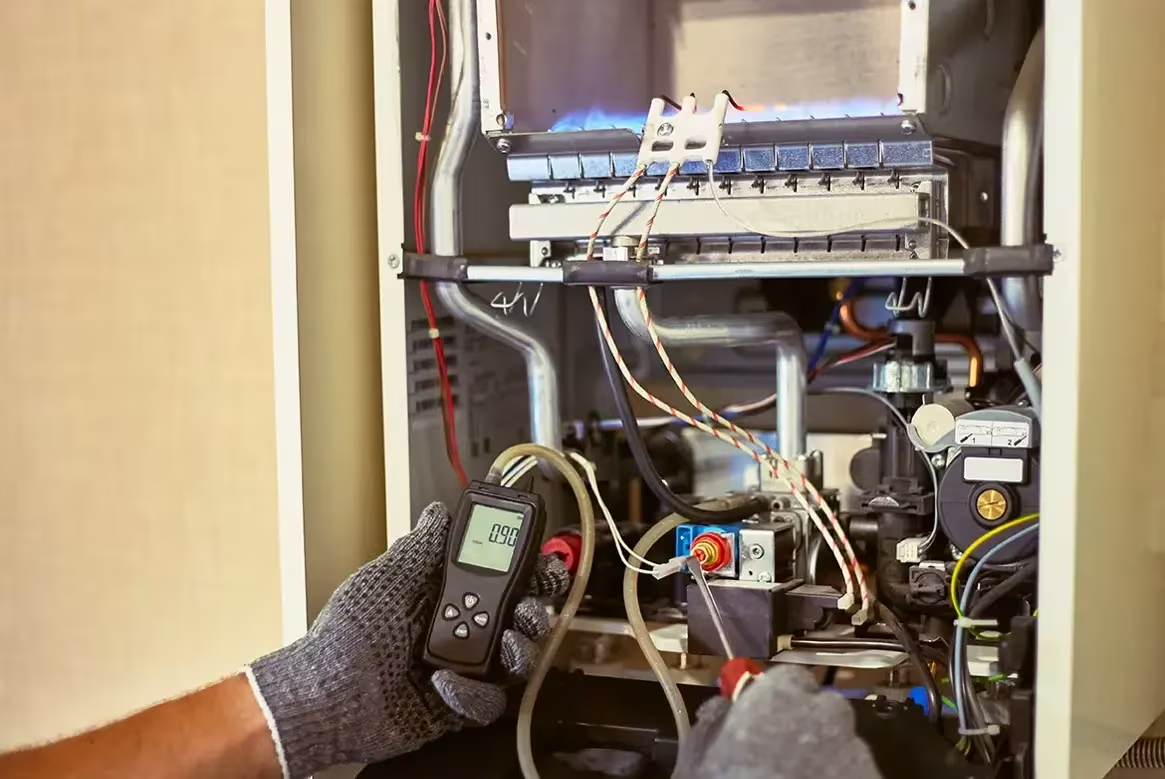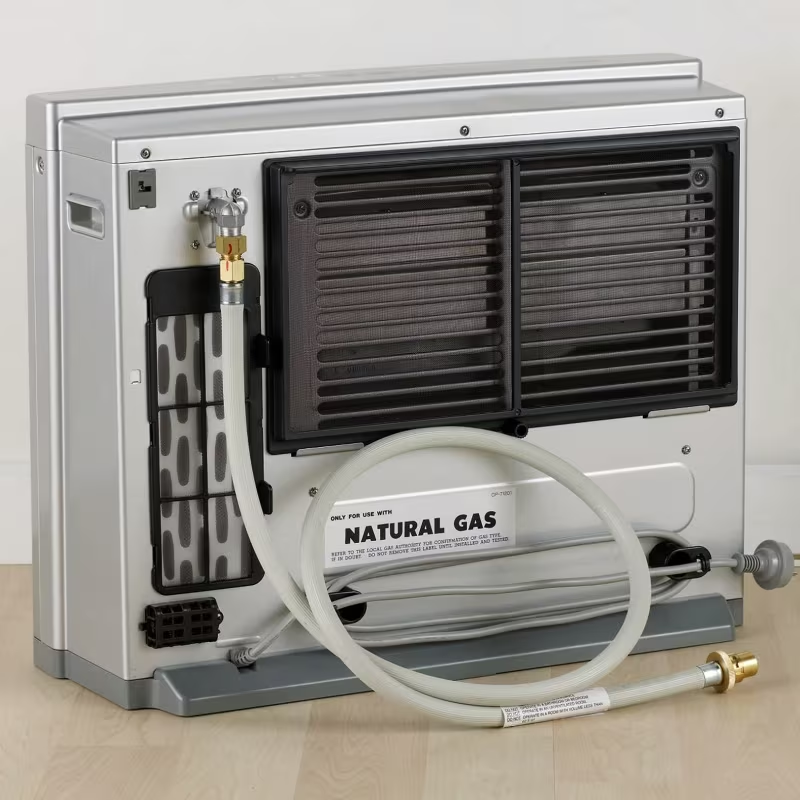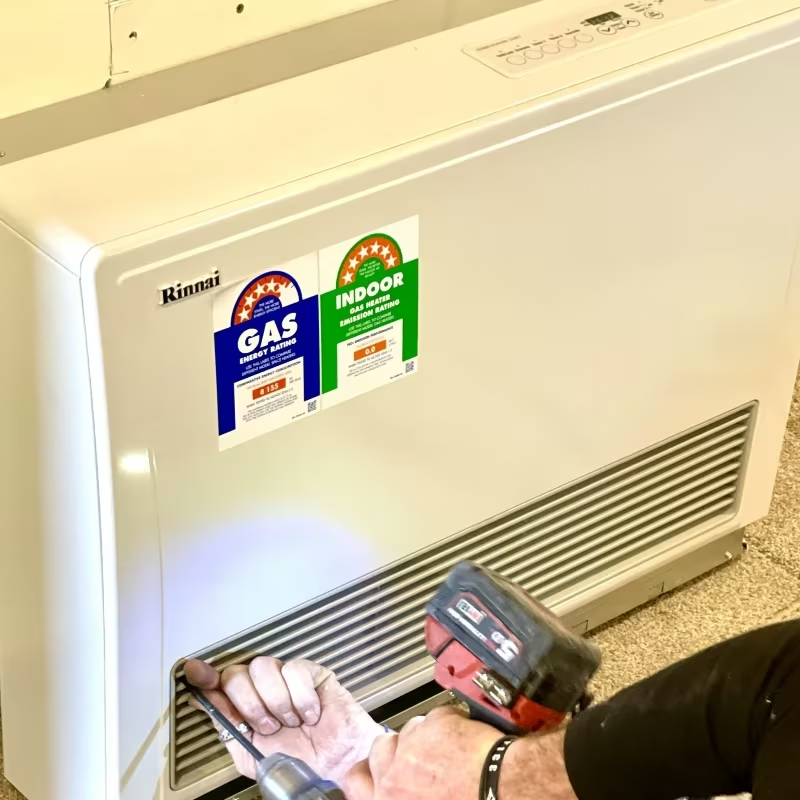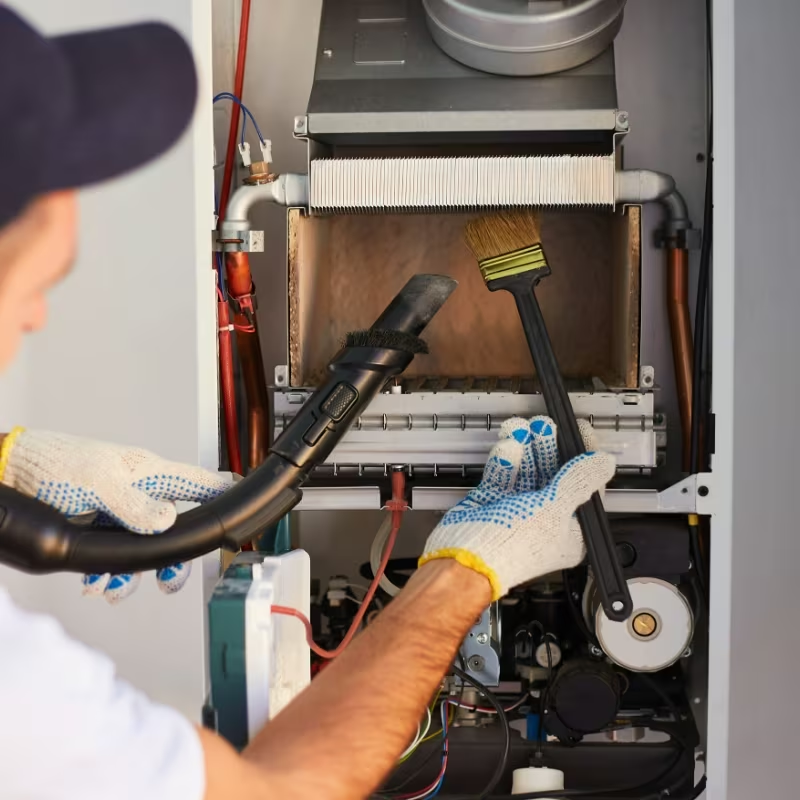Gas heater Canberra

Blueline Plumbing & Gas is the top gas heater professional in Canberra. Our skilled technicians and years of experience ensure high-quality gas heater services. We prioritise a warm and comfortable home and offer installation, maintenance, and repair services. Our goal is customer satisfaction, and we work with major brands and a variety of gas heaters. We focus on energy efficiency and offer expert advice on how to reduce energy consumption. We provide upfront pricing and installation warranties for peace of mind.
Request a quote

Why you should consider gas heating for your property
Gas heaters
Gas heating systems are a good choice for keeping your home warm. We specialise in installing, maintaining, and repairing gas heating systems in Canberra, Australia. Ducted gas heating is popular and has many benefits. It is safe and dependable, with no combustion byproducts in the living area. This eliminates the possibility of carbon monoxide poisoning. Our skilled technicians ensure proper installation and routine maintenance for safety. Ducted gas heating systems are more efficient, resulting in lower energy consumption and operating costs. This is important in Canberra's cold winters. These systems also offer flexible zoning options, allowing customisation of temperature in different areas of the home. This maximises comfort and energy savings. Gas heating is environmentally friendly, with fewer greenhouse gas emissions. By choosing gas heating, you contribute to a more sustainable future and reduce your carbon footprint.
We offer an incredible range of gas heating services
Blueline Plumbing and Gas provides a variety of gas heating services in Canberra. Our technicians perform installation, maintenance, and repairs. We specialise in ducted gas heating systems that will keep your home warm. Safety is our top priority, and we take precautions to avoid carbon monoxide poisoning. Our gas heating systems are highly efficient, lowering consumption and costs. We provide regular servicing to ensure peak performance. Trust Blueline Plumbing & Gas for friendly and professional gas heating service in Canberra.

Blueline Plumbing & Gas are your local specialist for all domestic plumbing and gas fitting needs.
Get in touch for a quote or speak with a qualified plumbing specialist. You can count on us to find the best solution if you need plumbing or repair help right away.

Gas heater services
Experience warmth and safety with our gas heater services. We offer top-notch gas installation, precise gas leak detection, carbon monoxide testing for peace of mind, and expert gas cooktop installation, repair, and servicing. Trust us for all your gas heating needs.
Professional gas heater installation, repair and maintenance
At Blueline Plumbing & Gas, we specialise in dependable gas heater installation, repair and maintenance services throughout Canberra. Our certified technicians handle both minor and major repairs efficiently, ensuring that your gas heaters run at their best. We provide a full range of services, including gas heating service, installation, and replacement. Our technicians install gas heaters safely and in accordance with industry standards. Whether you need a new installation or a repair, our team will get the job done right. Regular maintenance is required for your heating appliances to perform optimally. We provide routine maintenance to inspect and clean your heating systems, preventing potential problems. You can count on us for gas heater installation, repair, and maintenance. Our friendly staff is committed to providing exceptional customer service and ensuring your satisfaction.
Ducted gas heating
Blueline Plumbing & Gas offers top-notch gas heater services in Canberra. One popular option is the ducted gas heater system. These systems distribute warm air throughout the building, ensuring a cozy environment in the cooler months. Ducted gas heating uses ducts and vents to evenly distribute warm air to each room, heating every corner to your desired temperature. This maximises comfort and reduces energy consumption. Our qualified technicians are skilled in working with various gas heating systems, including ducted heaters, wall furnaces, flued space heaters, and console heaters. We provide upfront pricing, installation warranties, and regular maintenance options in our ducted gas heating service to prioritise customer satisfaction.
We offer the best range of major gas heater brands
Blueline Plumbing & Gas offers a wide range of major gas heater brands in Canberra. We partner with reliable brands like Rinnai, Vulcan, Brivis, and Braemar known for their high-performance and energy-efficient products. Rinnai, Brivis, and Vulcan gas heaters are Canberra's trusted heating brands. These gas heaters not only provide effective heating but also reduce energy consumption. We believe in offering our customers a variety of options to choose from to meet their preferences and requirements. Our gas heating technicians provide professional installation, servicing, and repairs to ensure customer satisfaction. We are dedicated to delivering heating solutions that meet the unique needs of our clients in Canberra.

Vulcan gas heaters Canberra
Rinnai gas heaters Canberra
Brivis gas heaters Canberra
Braemar gas heaters Canberra
Gas heater installation Canberra
Gas heater servicing Canberra
Gas heater repair Canberra
Gas heater repairs Canberra
Gas heater service Canberra
Gas heating service Canberra
Canberra gas heater service
Gas heaters Canberra
Ducted gas heating Canberra
Ducted gas heating service Canberra
Gas heating Canberra
Heater service Canberra
Gas heater installation
Gas heater servicing
Gas heater service
Gas heater repairs
Gas heaters
Contact us
Our team is ready to assist you!
19 Battye St, Bruce ACT 2617, Australia


-p-500.webp)



